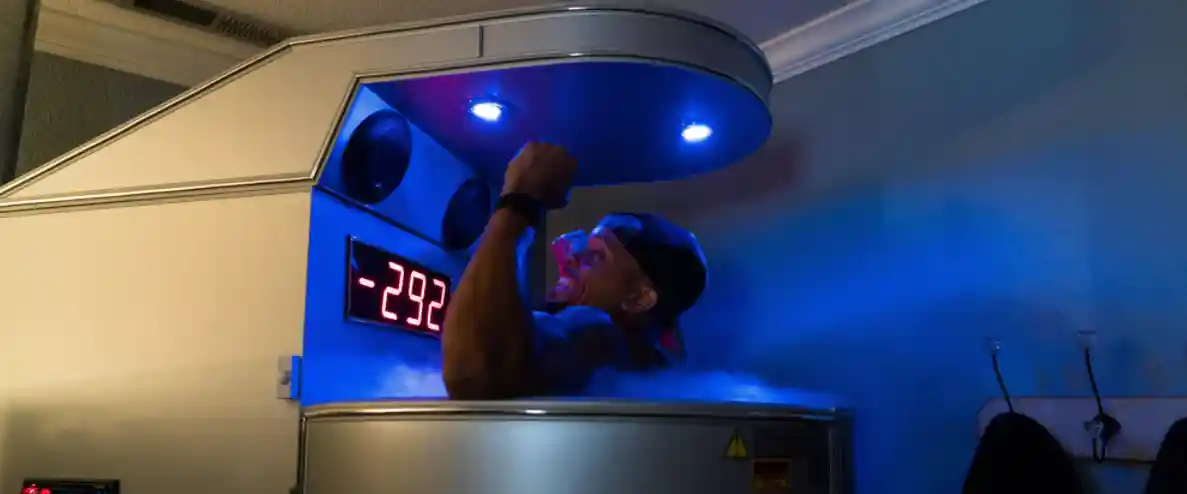Topics
- Article
#WHOOPEd Weekly Digest, Vol. 20

Preventing hamstring injuries, the effect of cold water immersion on athletes’ HRV, and how much does sleep effect our happiness?
Monday, September 18
Holistic Hamstring Health: Not Just The Nordics
- Hamstring strain injuries (HSIs) account for 12-26% of injuries in football, soccer, rugby and track and field.
- Risk factors for HSIs include: Age, previous injury, strength imbalance, flexibility, fatigue and low eccentric strength.
- Nordic hamstring exercise (NHE) has a growing body of evidence to support its impact on reducing HSI, however it should be used in an arsenal of rehabilitation exercises.
- NHE combined with sports-specific training has been shown to reduce both the incidence and recurrence rate of HSI by 60% and 85% respectively, in professional and amateur football players, following a 10-week intervention program.
- Take home points:
- Eccentric hamstring strength is likely to offset the likelihood of an injury in athletes.
- Use a multi-faceted approach to rehabilitation, such as hip extension exercises, stretching (glute, calf, quadriceps, etc.) and weekly increases in sprint distances in team based running sports.
Tuesday, September 19
New self-powered paper patch could help diabetics measure glucose during exercise
https://phys.org/news/2017-09-self-powered-paper-patch-diabetics-glucose.html
- Conventional glucose monitoring measurements are not realistic for preventing hypoglycemia in diabetics during exercise.
- The current process for glucose monitoring is invasive, requires many materials for measurement during activity and is not available in a compact and portable fashion.
- Professor Choi, and fellow researchers at Binghamton University, have developed a self-powered, wearable and disposable patch which allows non-invasive monitoring of glucose.
- The device attaches directly to the skin and wicks sweat to a reservoir where glucose is measured.
Wednesday, September 20
Amount of Minutes Played Does Not Contribute to Anterior Cruciate Ligament Injury in National Basketball Association Athletes
- Movements in sport like cutting, jumping and landing predispose athletes to injury such as anterior cruciate ligament (ACL) tears.
- On average, NBA athletes played significantly fewer minutes before sustaining an ACL injury than their average minutes per game.
- One-third of all injuries occurred during the first quarter of the season.
- A study reported that 62-63% of NFL athletes return to play following ACL reconstruction, while this study showed 95% return to NBA play.
- This study showed that the amount of minutes played doesn’t necessarily contribute to ACL injury risk, rather other factors as discussed previously.
Thursday, September 21
Effect of daily cold water immersion on heart rate variability and subjective ratings of well-being in highly trained swimmers
https://www.ncbi.nlm.nih.gov/pubmed/21941017
- Over two different weeks, eight swimmers executed their normal training routine.
- Immediately following their last training session, each swimmer was randomly put in cold water immersion (CWI) 15 degrees celsius, or without.
- Each morning before their first training session, subjective ratings of well being were assessed, as was HRV.
- Compared with no treatment, CWI can reduce the usual decreased effect of exercise on the parasympathetic activity, and perceived sleep quality can be improved by association.
Friday, September 22
The secret of happiness lies in a good night’s sleep
https://www.thetimes.co.uk/article/the-secret-of-happiness-lies-in-a-good-night-s-sleep
- England’s National Center for Social Research conducted a survey of 8,250 British adults. Answers to questions about happiness and wellbeing were cross referenced with responses to a variety of lifestyle questions.
- Results indicated “that quality of sleep has by far the strongest association with wellbeing among elements of our lifestyle that we can control.”
- More than 60% of the people who said they were living well also felt well rested, but fewer than 5% of the people “struggling” made that claim.
- Conversely, an increase in income had very little impact on happiness.